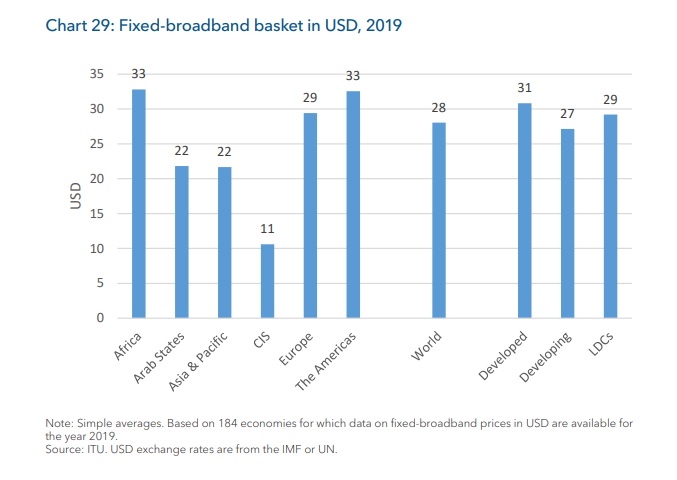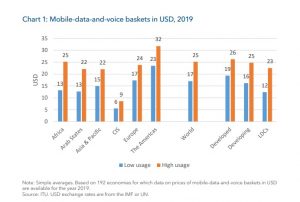
GENEVA — Despite the fact that prices for mobile and fixed-broadband services continue to decline around the world, the global rate of Internet penetration has not increased rapidly, suggesting there are other barriers to Internet use, says the International Telecommunication Union (ITU) in a new report.
Released Tuesday, the ITU’s Measuring Digital Development: ICT Price Trends 2019 report concludes other factors impacting global Internet uptake include low levels of education, lack of relevant content, lack of content in local languages, lack of digital skills, and low-quality Internet connections.
“The Covid-19 crisis has clearly shown us that nobody is safe until we are all safe. By the same token, we will not be able to use the full potential of digital technologies until we are all connected,” said Doreen Bogdan-Martin, director of the ITU Telecommunication Development Bureau, in the news release. “To connect all, we need to address all factors that may prevent meaningful connectivity.”
Looking at mobile price decreases from 2013 to 2019, the global average price of a mobile-data basket of 1.5 gigabytes (GB) decreased from 8.4% of gross national income (GNI) per capita in 2013 to 3.2% in 2019, at a compound annual growth rate of almost -15%, according to the ITU report. When expressed in U.S. dollars, the global average price of a mobile-data basket of at least 1.5 GB dropped by 7% on average annually between 2013 and 2019, the ITU says.
In 70 countries, a low-usage mobile-voice plan was available for less than 1% of GNI per capita, and in another 37 countries it was available for less than 2% of GNI per capita. “Although causality is difficult to prove, price reductions have undoubtedly helped contribute to the rapid rise in the mobile-voice penetration rate, alongside growing competition and better price monitoring and evaluation by regulators,” reads the news release.
In addition, the expansion of bundled services has further reduced mobile prices, as combined data-and-voice baskets are generally less expensive than buying two separate baskets in most markets, the ITU says. Although data-and-voice bundles are common in Canada and other developed countries, they have not been so in developing countries until recently; the ITU notes in its report that analyzing prices for combined mobile services is a major departure from the ITU’s previous approach to price data collection.
According to the ITU’s global analysis, fixed-broadband packages remain generally more expensive than mobile-data packages, with the affordability of fixed broadband not having changed substantially over the past four years, while advertised download speeds have continued to increase.
The Measuring Digital Development: ICT Price Trends 2019 report monitors the affordability of information and communication technology services by analyzing and comparing price data for mobile-voice services, mobile data and fixed broadband for analysts, telecom operators, policy makers and economists. The report provides analysis in terms of dollar price, exchange-rate adjusted prices and affordability for mobile-voice, mobile and fixed broadband according to internationally agreed baskets for services, including bundled services.
To access a copy of the report, please click here.




